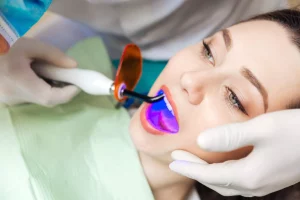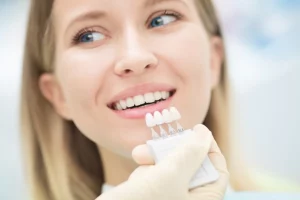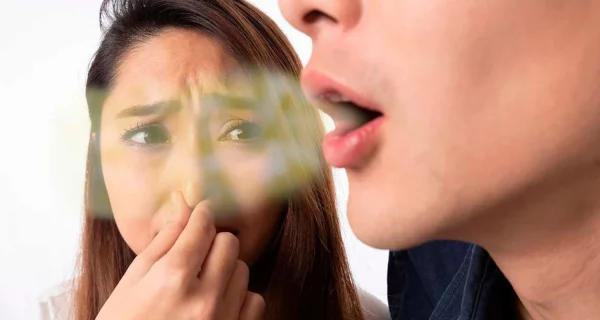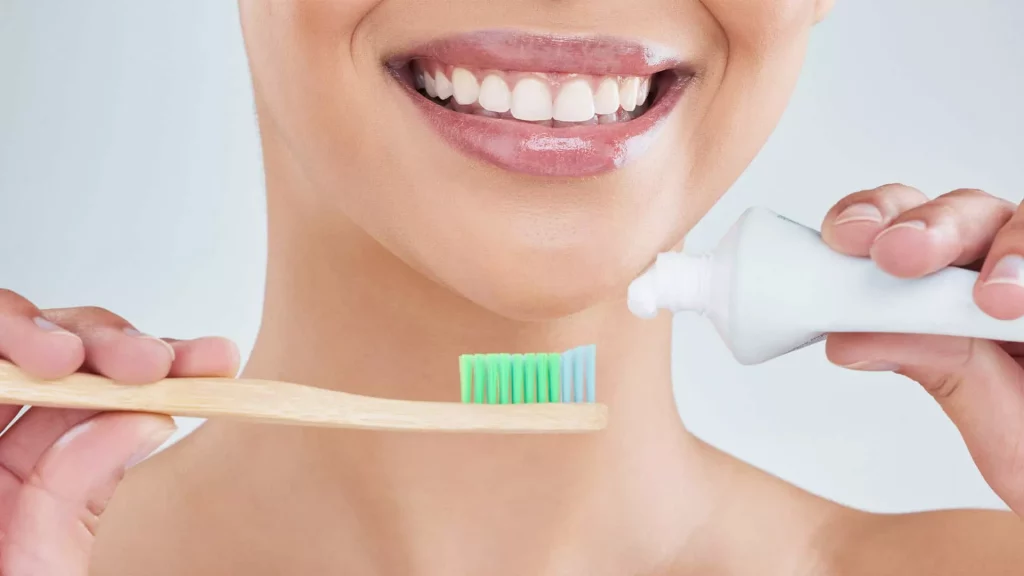Last Updated on: 19th December 2025, 05:55 am
Breast cancer treatments like chemotherapy and radiotherapy can cause dry mouth, mouth sores, gum pain, taste changes, infections, and a higher risk of cavities. These side effects affect oral health and require special care during and after treatment.
Although it may seem that the mouth is an isolated part of the body, it is completely connected with general health. Many diseases are reflected in oral health, and breast cancer is no exception.
When many patients start chemotherapy or radiotherapy, they are surprised to discover how much these treatments affect the mouth. Dry mouth, sores, pain, and infections can make eating, speaking, and even enjoying daily life difficult.
This guide explains how breast cancer treatments affect teeth and gums, which problems can appear, and what strategies help protect oral health.
Table of Contents
ToggleWhat is breast cancer?

Breast cancer is a disease where some cells in the breast grow uncontrollably and form a lump or tumor.
- Where it starts: It can begin in the milk ducts (ductal carcinoma), in the lobules that produce milk (lobular carcinoma), or in other breast tissues.
- How it spreads: If not treated early, cancer cells can travel through the blood or lymph vessels to other organs. This process is called metastasis.
- Types: There are several types, which can be invasive (spreading beyond the breast) or non-invasive (contained in the ducts or lobules).
- Frequency:
- It is the most common cancer in women worldwide.
- In the U.S., it is the second most diagnosed cancer in women.
- It can also affect men, but much less frequently (about 1% of cases).
- Risk factors: Age, family history, certain genetic mutations (BRCA1, BRCA2), hormonal factors, obesity, and alcohol use may increase the risk.
- Symptoms to watch for: A new lump in the breast or armpit, changes in breast size or shape, skin dimpling, nipple discharge (especially bloody), or pain that doesn’t go away.
Regular self-exams and medical check-ups help find cancer at an early stage. Early diagnosis increases survival rates and improves quality of life during and after treatment.
How does breast cancer affect the mouth and teeth?

Cancer treatments are powerful. While they target cancer cells, they also affect healthy tissues like those in the mouth.
Common effects include:
- Difficulty eating solid or soft foods.
- Pain when chewing or swallowing.
- Mouth and gum pain.
- Higher tooth sensitivity.
- Taste changes or loss of appetite.
- More risk of cavities and gum disease.
- Changes in saliva flow and quality.
The two treatments with the biggest impact on oral health are chemotherapy and radiotherapy.
What are the effects of chemotherapy on oral health?
Chemotherapy uses powerful drugs to attack fast-growing cells. While its main goal is to kill cancer cells, it also damages healthy cells that need to regenerate quickly, like blood cells, skin, and oral mucosa.
As a result, the immune system becomes weaker and the mouth is more vulnerable to infections and wounds.
Most common side effects of chemotherapy
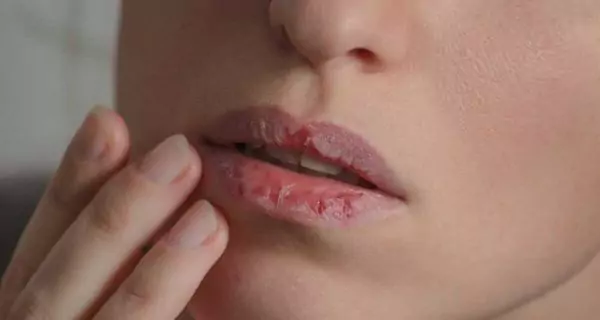
- Mouth and gum pain.
- Ulcers and sores (oral mucositis).
- Dry mouth (xerostomia) or thick saliva.
- Burning or inflamed tongue.
- Higher risk of fungal, bacterial, or viral infections.
- Taste changes (metallic taste, food tasting bland).
Other possible effects
- Myelosuppression: fewer blood cells, which increases the risk of bleeding, anemia, and slow healing.
- Dental nerve pain: certain drugs cause unexplained tooth pain.
- Problems in children: In kids under 9, high-dose chemo can affect tooth development and bone growth.
In general, chemotherapy side effects are temporary and tend to improve once treatment stops.
What are the effects of radiotherapy on oral health?
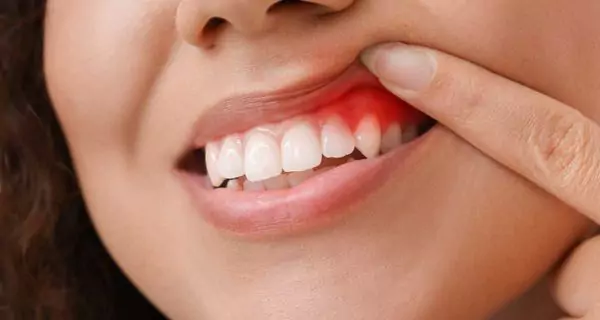
Radiotherapy targets cancer cells, but it can also damage nearby tissues such as the salivary glands, jawbone, or oral mucosa.
The most frequent side effect is xerostomia (dry mouth), due to reduced saliva production (which may decrease by up to 97%). This dryness can last months, years, or even be permanent.
Why saliva matters
- Starts digestion.
- Balances mouth pH.
- Protects against infections.
- Helps taste food.
- Prevents cavities and gum disease.
Common side effects of radiotherapy
- Difficulty swallowing solid foods or even liquids.
- Mouth irritation, burning, or itching.
- Rapidly progressing cavities (“radiation caries”).
- Gum inflammation or bleeding.
- Taste loss or reduced appetite.
- Osteoradionecrosis: long-term severe bone damage in the jaw.
Unlike chemotherapy, radiation damage can be permanent and may lead to lifelong oral complications.
How to care for your mouth during breast cancer treatment?
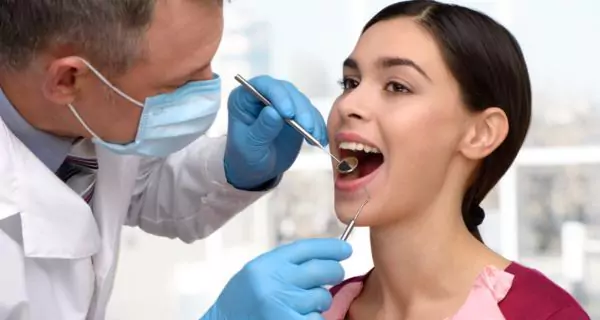
Oral care is very important before, during, and after cancer treatment. The mouth becomes more sensitive, so small problems can turn into big ones if ignored. A healthy mouth helps reduce infections, pain, and treatment delays.
What should I do before treatment starts?
A dental check-up before therapy lowers the risk of complications later.
- Full dental exam and X-rays if needed.
- Treat cavities, gum disease, or active infections.
- Get a professional cleaning.
- Tell your dentist about your cancer treatment plan.
- Avoid extractions or implants once therapy begins.
The National Cancer Institute recommends visiting your dentist about 4 weeks before starting therapy, if possible.
What is the best oral care routine during treatment?

The goal is to keep the mouth clean, comfortable, and free from infection while therapies are ongoing. Small daily habits can have big results.
Daily hygiene
- Brush with an extra-soft toothbrush (soften bristles in warm water).
- Use fluoride with xylitol toothpaste.
- Clean the toothbrush daily with chlorhexidine.
- Replace the toothbrush monthly.
- Floss gently once a day.
Rinses (every 4–6 hours)
Rinsing helps keep the mouth clean, neutralizes acids, and soothes irritation. Rotate between these safe options:
- Plain water: keeps the mouth hydrated and washes away food debris.
- Salt water: reduces swelling, disinfects gently, and promotes healing.
- Baking soda water: balances mouth pH and protects teeth from acid damage.
- Salt with baking soda solution: combines the healing and neutralizing effects, especially useful for sores or irritation.
For dry mouth (xerostomia)
- Drink water often.
- Suck on ice chips or chew sugar-free gum.
- Use artificial saliva sprays or gels.
- Apply lip balm several times daily.
- Avoid alcohol-based rinses and sugary drinks.
For mouth sores (mucositis)
- Clean gently with a baking soda solution.
- Eat soft, cold, or lukewarm foods.
- Avoid spicy, salty, acidic, or hard foods.
- Use soothing gels or rinses with hyaluronic acid or lidocaine (if prescribed).
- Adjust prostheses to prevent irritation.
Contact your oncology team if you have sores, bleeding gums, fever, or cannot swallow.
What care is needed after treatment ends?

Some side effects, like dry mouth or cavity risk, may last for months or years after therapy. Keep these habits:
- Visit your dentist every 3–6 months.
- Repair or replace damaged teeth if needed.
- Continue daily brushing, rinses, and hydration.
- Use extra fluoride (gels, trays, or rinses) if recommended.
- Make oral care part of your lifelong routine.
What should I avoid during treatment?
Some habits and procedures can worsen mouth problems or slow down healing. Try to stay away from the following:
- Invasive dental work (extractions, implants).
- Smoking and alcohol.
- Rinses with alcohol or peroxide (unless your doctor says so).
- Very hot, cold, spicy, acidic, or hard foods.
- Ignoring warning signs (pain, sores, bleeding).
When should I call my dentist or doctor?
Even with good care, problems can appear suddenly. Contact your oncology or dental team right away if you notice:
- Fever of 100.4 °F (38 °C) or higher.
- Redness, pain, or white patches in your mouth.
- Gum bleeding.
- Pain or trouble swallowing.
- Severe pain not relieved by medicine.
- Any sudden change in your oral health.
Looking for trusted dental care during cancer treatment?
Cancer patients need a dental team that understands the side effects of chemotherapy and radiotherapy.
At Channel Islands Family Dental Office, you will find safe, preventive, and restorative care designed for oncology patients.
Locations: Ventura, Newbury Park, Oxnard, Santa Paula, and Port Hueneme.
- Dentists experienced in managing oral complications from cancer therapy.
- Gentle care to reduce pain and prevent infections.
- Focus on prevention before, during, and after treatment.
- Support for long-term oral health and quality of life.
Protect your smile during cancer treatment. Schedule an appointment today with Channel Islands Family Dental Office.
Frequently Asked Questions (FAQ)
Voice and Search Snippets (Q&A)
Where can I find a dentist for cancer-related oral care?
At Channel Islands Family Dental Office, our team is trained to care for patients during and after cancer therapy.
What toothpaste is best during chemotherapy?
Use a fluoride toothpaste, preferably with xylitol, and avoid whitening or abrasive pastes.
What foods are easiest to eat with mouth sores?
Soft, cold, or lukewarm foods like yogurt, smoothies, or mashed potatoes.
References
1. American Dental Association. (2022, August 30) Cancer Therapies and Dental Considerations. ADA. https://www.ada.org/resources/research/science-and-research-institute/oral-health-topics/cancer-therapies-and-dental-considerations
2. Felman, A. (2025, July 4). What to know about breast cancer. Medical News Today. https://www.medicalnewstoday.com/articles/37136
3. Harding, J. (2017). Dental care of cancer patients before, during and after treatment. BDJ Team, 4(1), 10–12. https://doi.org/10.1038/bdjteam.2017.8
4. Krans, B. (2021). Chemotherapy. Healthline. https://www.healthline.com/health/chemotherapy
5. Mouthhealthy. (2015, October 7) Cancer Dental Health. Oral Health Information From the ADA. https://www.mouthhealthy.org/all-topics-a-z/cancer-dental-health
6. Taichman, L. S., Gomez, G., & Inglehart, M. R. (2014, April 1). Oral Health-Related Complications of Breast Cancer Treatment: Assessing dental hygienists’ knowledge and professional practice. https://pmc.ncbi.nlm.nih.gov/articles/PMC4075039/







